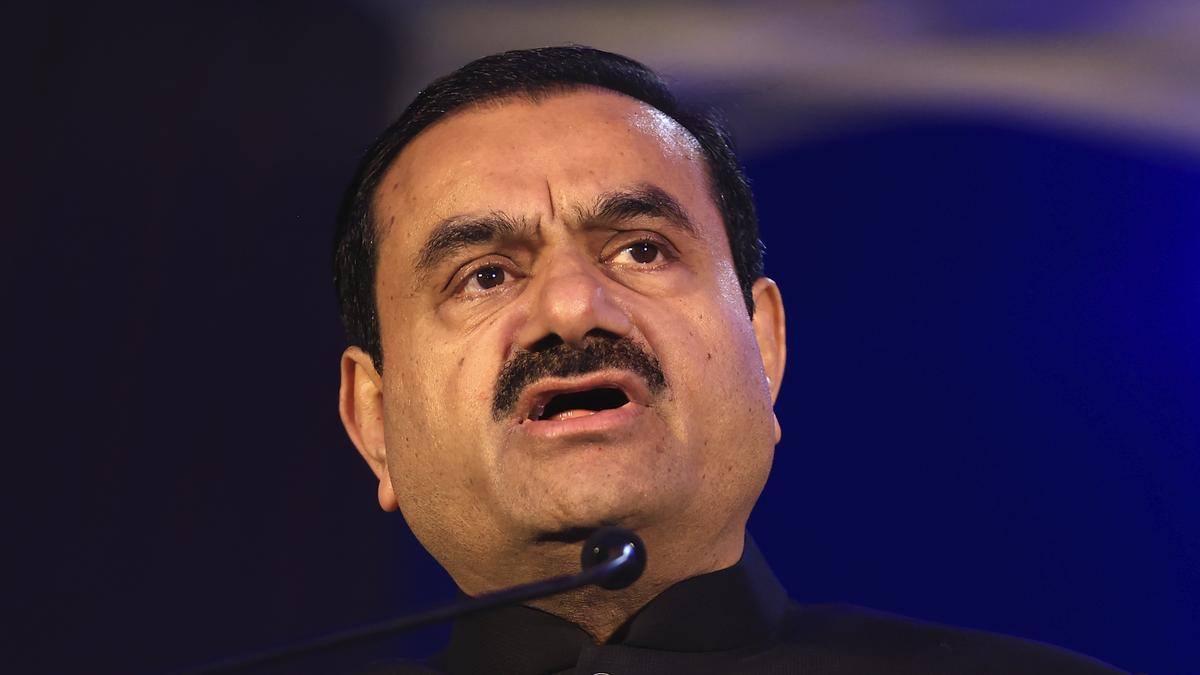 |
|
The Adani Group, a prominent Indian conglomerate, is embroiled in a significant crisis following bribery charges filed by the U.S. Department of Justice (DOJ). The charges allege that Gautam Adani, chairman of the Adani Group, and his associates, including his nephew Sagar Adani, orchestrated a scheme involving $265 million in bribes to secure favorable deals for Adani Green Energy Ltd. (AGEL), a subsidiary focused on renewable energy. This isn't the first time the Adani Group has faced serious allegations; last year, short-seller Hindenburg Research leveled fraud accusations, leading to a staggering $150 billion loss in market value. The current accusations, however, center specifically on alleged bribery of Indian state government officials to ensure the purchase of eight gigawatts of renewable energy produced by AGEL by state power distribution companies (DISCOMs). The DOJ alleges that AGEL, in collusion with Azure Power Energy Ltd., paid these bribes to overcome DISCOMs’ reluctance to purchase energy at the high prices quoted by AGEL. This highlights a broader issue within India's renewable energy sector, where states often struggle with the financial burden and infrastructure requirements of adopting renewable sources, sometimes leading to non-compliance with purchase obligations set by the central government.
The immediate aftermath of the DOJ's announcement saw a sharp decline in the value of Adani Group companies' shares. While the shares have since recovered a portion of their losses, the long-term implications remain deeply uncertain. AGEL's initial response, denying the bribery allegations, did help to stem some of the initial panic, but the damage has been done. The group claims the allegations cost its listed companies a $55 billion loss in market value. This further erodes investor confidence and raises serious questions about the Adani Group's corporate governance practices. The event underscores the vulnerability of a business empire heavily reliant on both domestic and international funding, particularly when facing serious allegations of this magnitude. The impact on the Adani Group's ability to raise funds from overseas investors is substantial, forcing the company to potentially rely more heavily on domestic investors. This dependence on domestic funding could leave the group more vulnerable to shifts in the Indian market and less resilient to future financial challenges.
The response from lenders and rating agencies has been notably cautious. Indian banks, significant creditors to the Adani Group, are reviewing their exposure. The State Bank of India (SBI), the largest lender, while noting its exposure is under 1% of its total loan book, has indicated increased caution in future disbursements, though they will continue to fund projects nearing completion. This measured response from SBI suggests a degree of risk assessment, even amidst the ongoing uncertainty. Meanwhile, major international rating agencies, including Fitch Ratings, Moody's, and S&P Global, have taken negative rating actions on various Adani firms, citing governance risks and the potential for broader credit impacts across the group. The impact is tangible, with AGEL forced to shelve a planned $600 million bond issue as a direct consequence of these negative rating actions. These actions collectively paint a picture of diminished trust and increased scrutiny from financial institutions, placing significant pressure on the Adani Group's financial stability and future projects.
The allegations against the Adani Group raise significant concerns about the integrity of India's renewable energy sector and the effectiveness of government policies aimed at boosting its growth. The Indian government's goal to increase renewable energy capacity to 500 gigawatts by 2030 is now clouded by the controversy. The accusations suggest a systemic problem where financially strained DISCOMs, facing pressure to meet Renewable Purchase Obligations, may be vulnerable to bribery and coercion. This situation highlights the need for greater transparency and accountability within the sector. If the allegations are proven true, it raises serious questions about the ethical conduct of major players and the effectiveness of regulatory oversight. The case also serves as a stark reminder of the challenges inherent in achieving ambitious renewable energy targets while ensuring ethical and transparent business practices. The long-term consequences for the Adani Group, the renewable energy sector in India, and the country's overall economic trajectory remain uncertain and depend significantly on the investigation’s outcome and subsequent legal proceedings.
The ultimate implications of this case are far-reaching. The heightened costs of capital, potential impact on profitability, and the damaged reputation of the Adani Group will undoubtedly impact its future endeavors. While some argue that lenders may have already factored in potential corrupt practices into their lending decisions, the very public nature of these accusations will inevitably make future funding far more challenging to secure. The investigation’s outcome will determine whether the accusations are substantiated and to what extent the Adani Group's operations will be affected. Irrespective of the legal outcome, the event marks a significant blow to the group's image and raises serious questions about corporate governance and transparency within Indian business. It also highlights the need for robust regulatory mechanisms to prevent such alleged activities in the future and ensure the integrity of the renewable energy sector's expansion.
